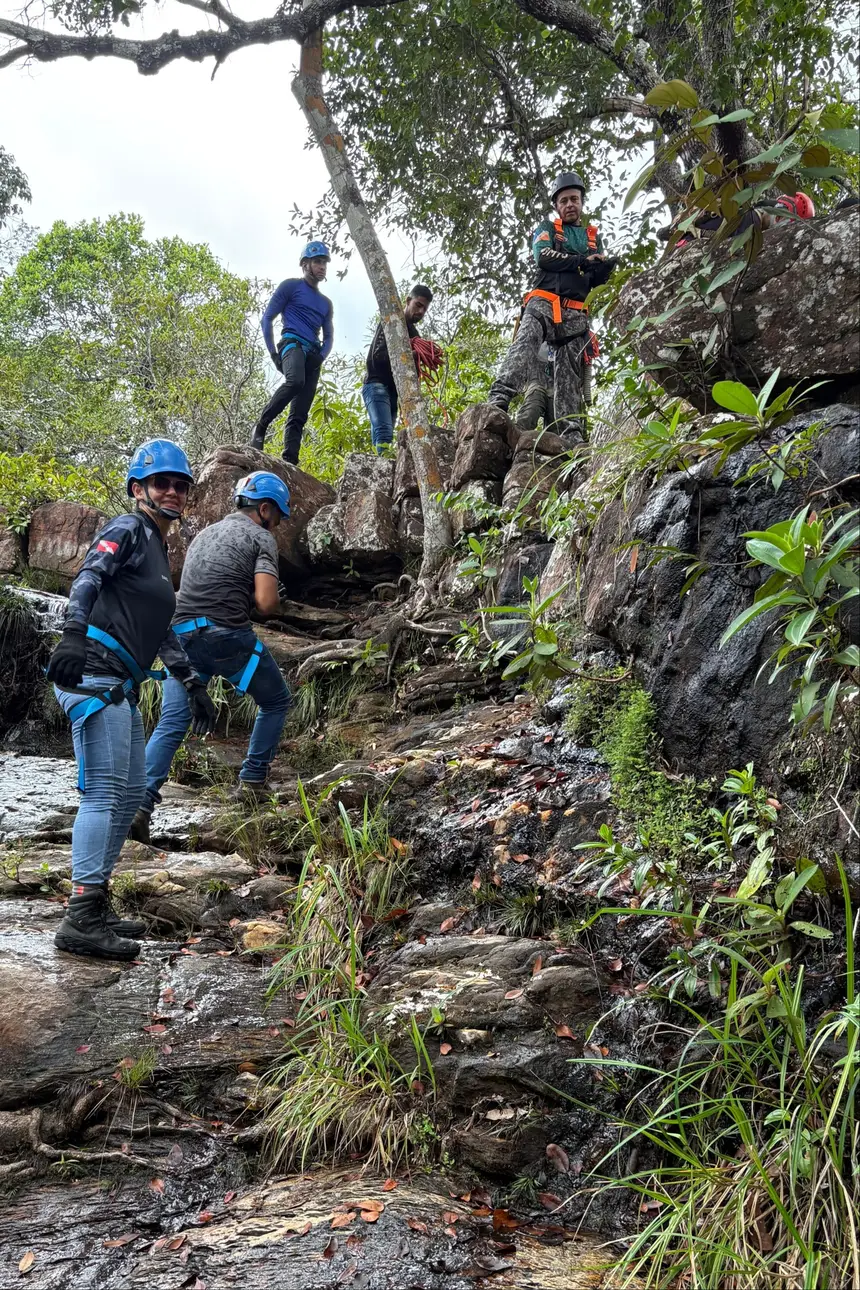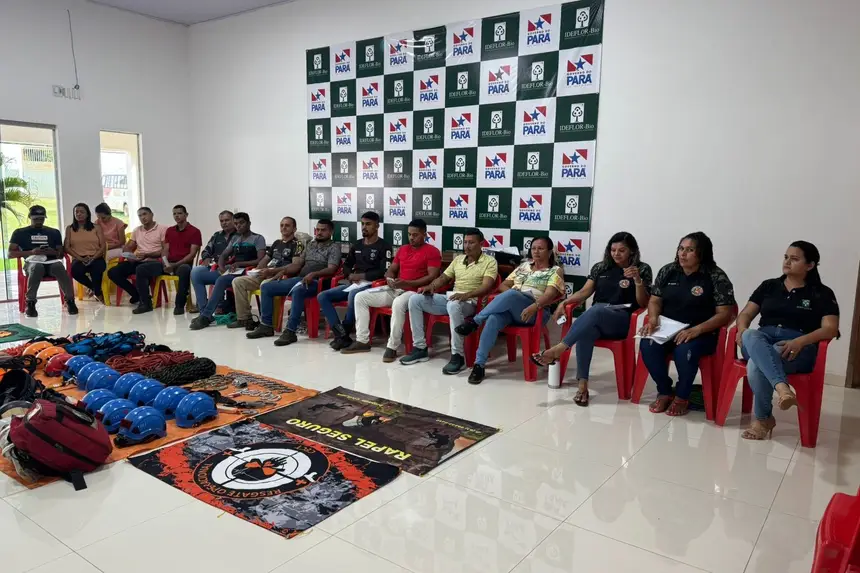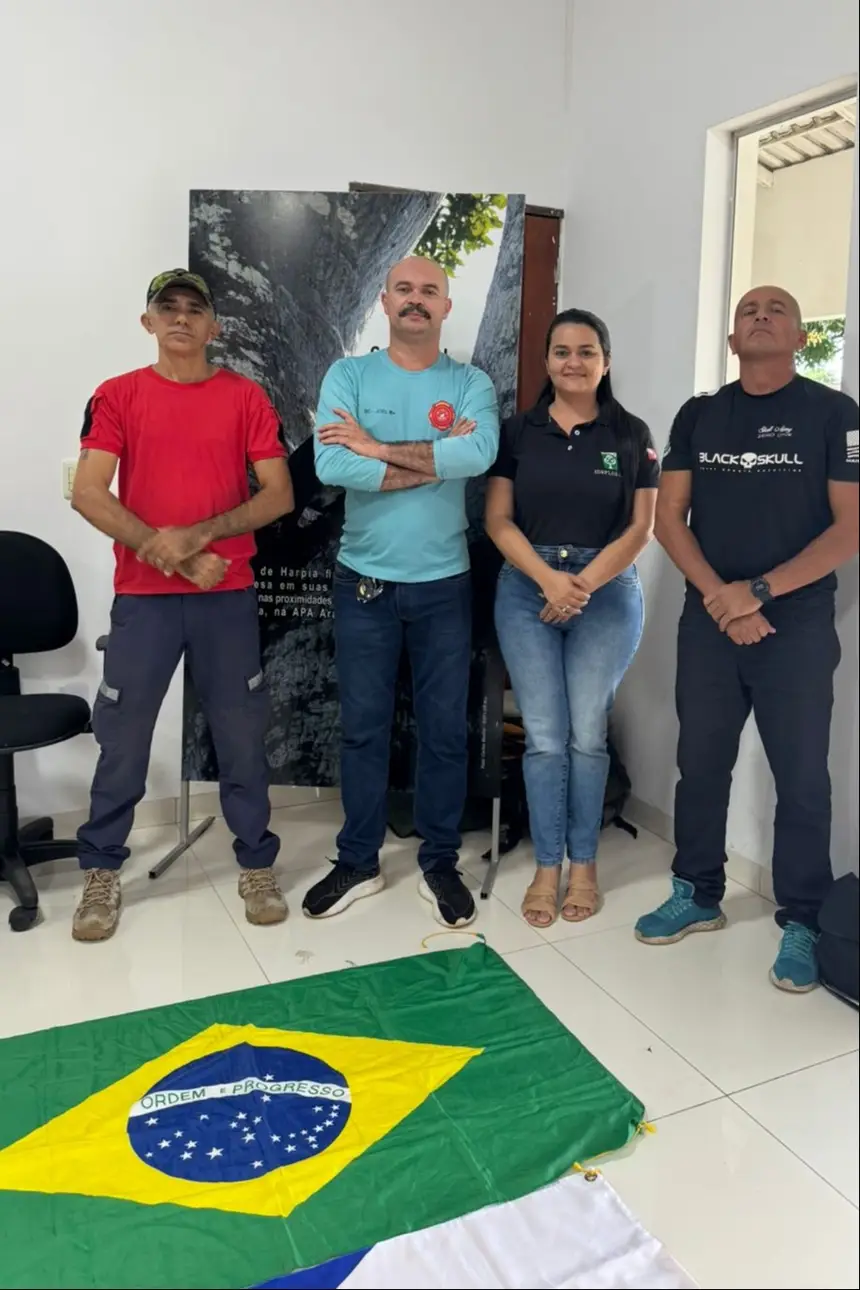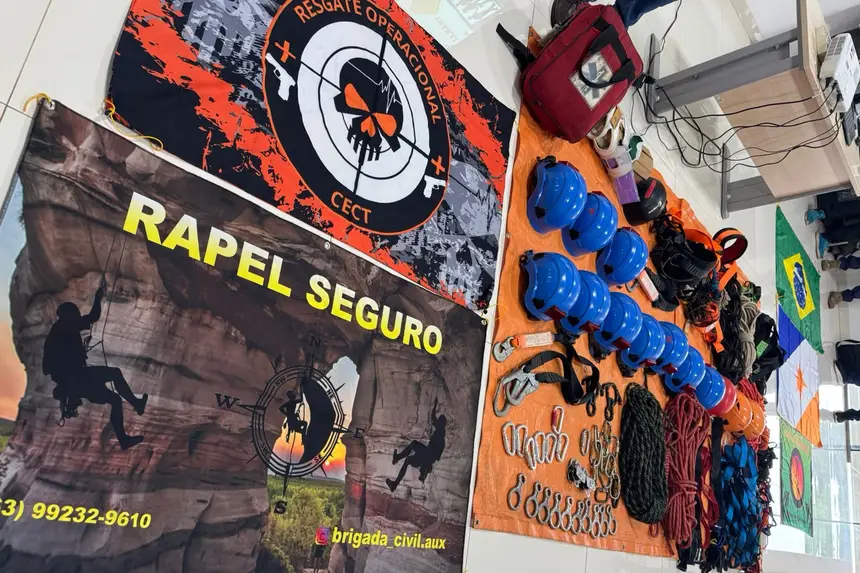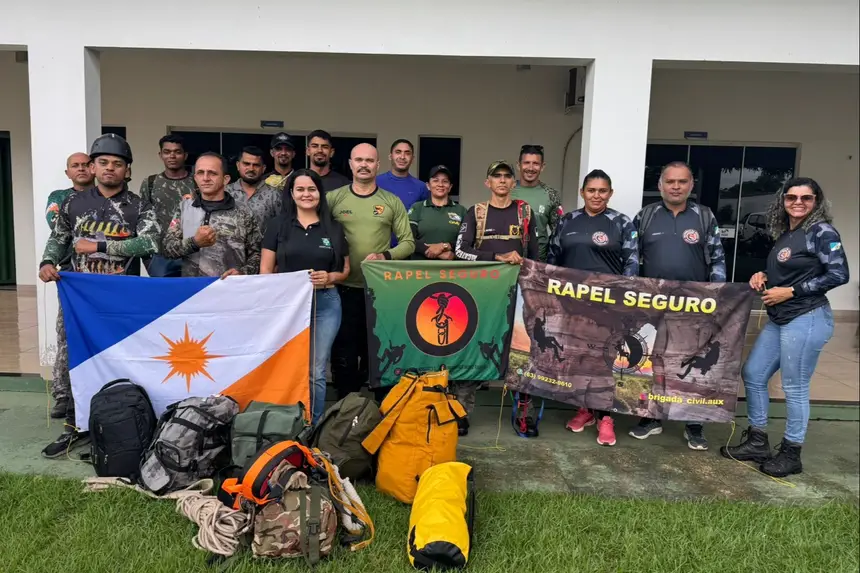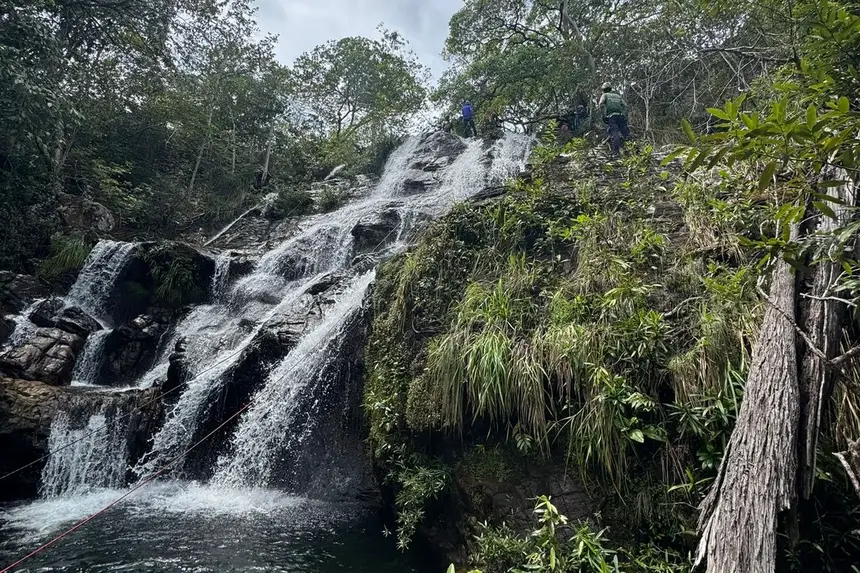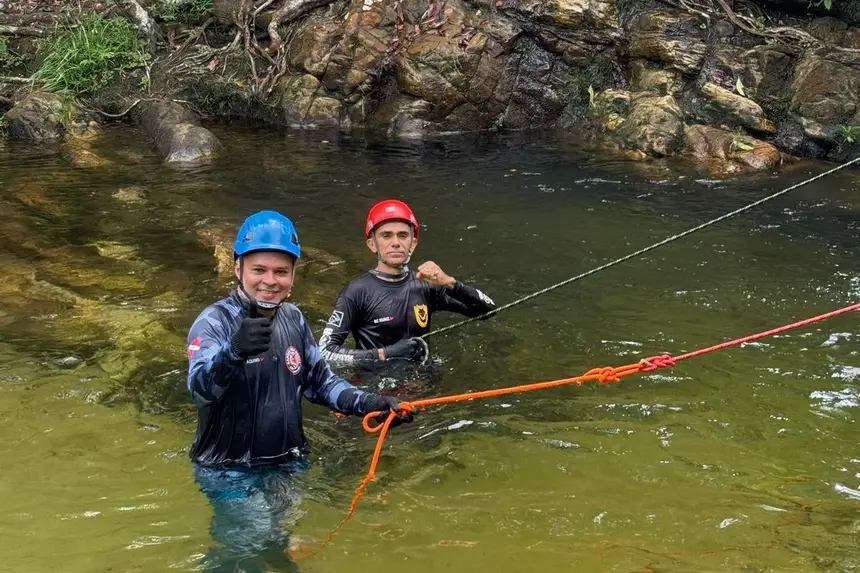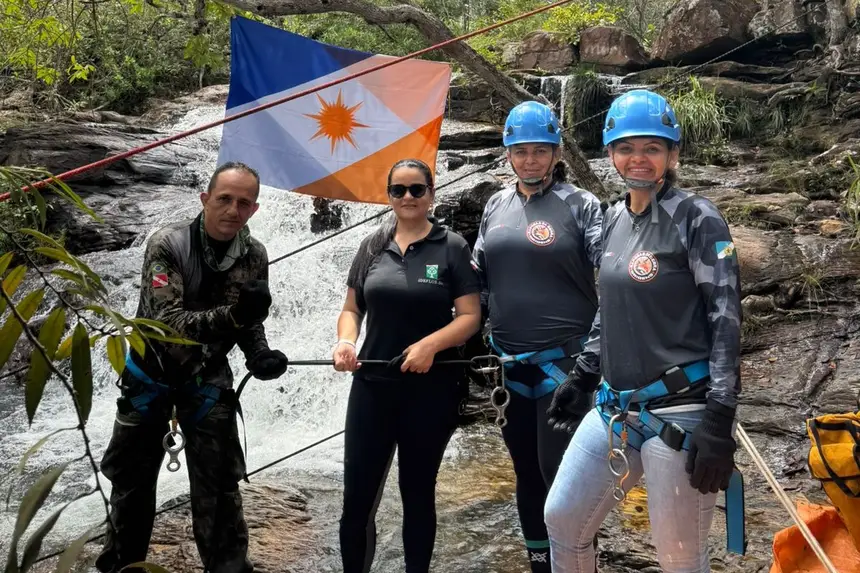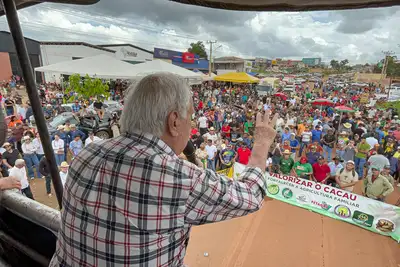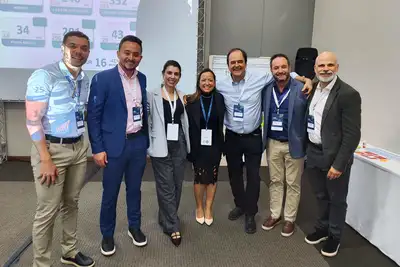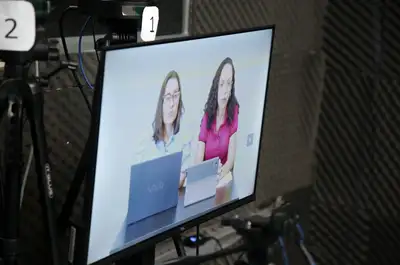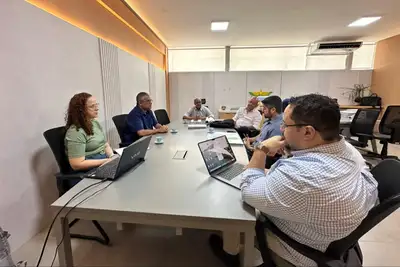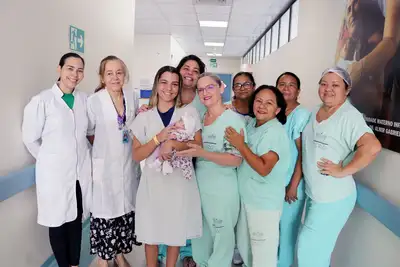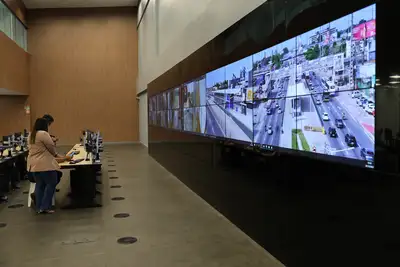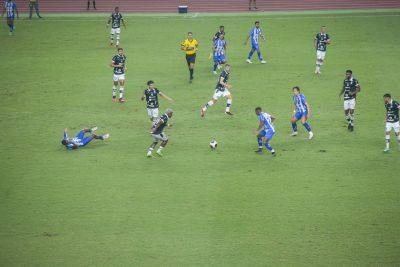Training in rappelling and NR-35 strengthens safety and tourism in the Serra dos Martírios/Andorinhas State Park
The program was aimed at training participants for safe work at heights and practicing rappelling in a natural environment
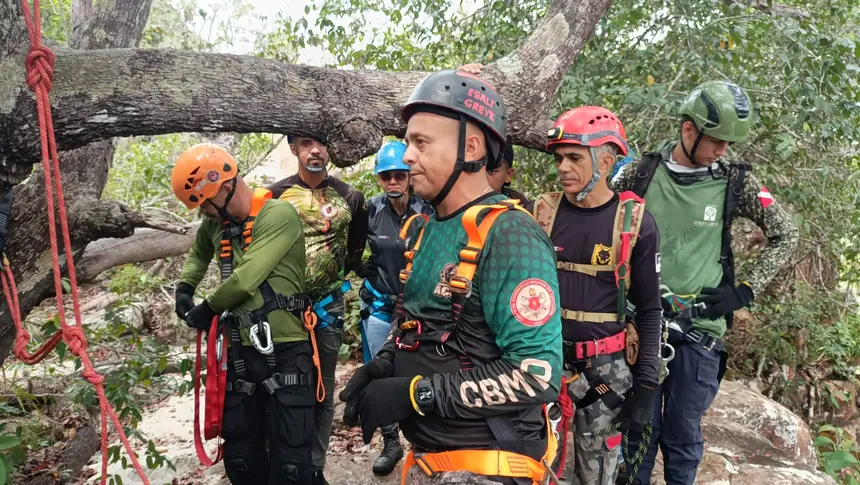
The Serra dos Martírios/Andorinhas State Park, in southeastern Pará, hosted a rappelling course with technical training in accordance with Regulatory Standard No. 35 (NR-35), which addresses safety in activities performed at heights. The training was promoted by the Institute for Forest Development and Biodiversity (Ideflor-Bio), through the Araguaia Administrative Region Management (GRA), with support from the Amazon Protected Areas Program (Arpa), councilman Douglas Costa, and the tourist enterprise Cachoeiras Três Quedas.
Aimed at local residents and practitioners of vertical activities, the course lasted two days and covered theoretical and practical content on the protocols required by NR-35. The program included classroom lessons and field experiences, with supervised rappelling practice on the park's rock formations. The proposal was to ensure not only the safety of participants but also to provide an educational experience in nature.
The initiative strengthens the role of the Serra dos Martírios/Andorinhas State Park as a space for learning, leisure, and sustainable tourism. In addition to developing technical skills, the course reinforced the community's bond with the Conservation Unit (UC), encouraging the appreciation of the territory and engagement in the protection of the region's natural heritage.
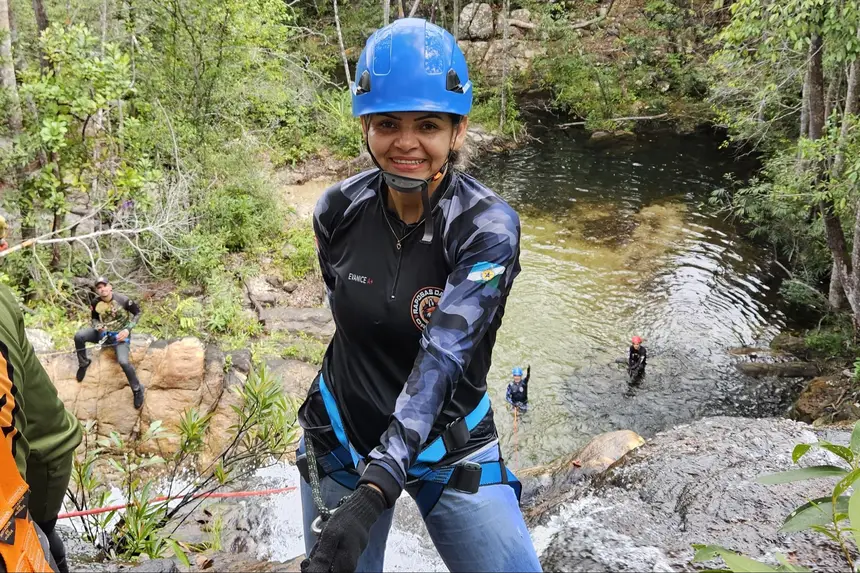
For Laís Mercedes, manager of the Araguaia Administrative Region, the training represents an important step in creating conscious multipliers. "Our goal is to combine technical training with environmental education, fostering responsible tourism and creating a network of people prepared to act safely and respectfully towards nature," she highlighted.
The partnership with the Cachoeiras Três Quedas enterprise was also essential for the success of the action. The collaboration between the public sector, private initiative, and civil society has proven to be an effective strategy for strengthening actions in the Park, promoting local leadership.
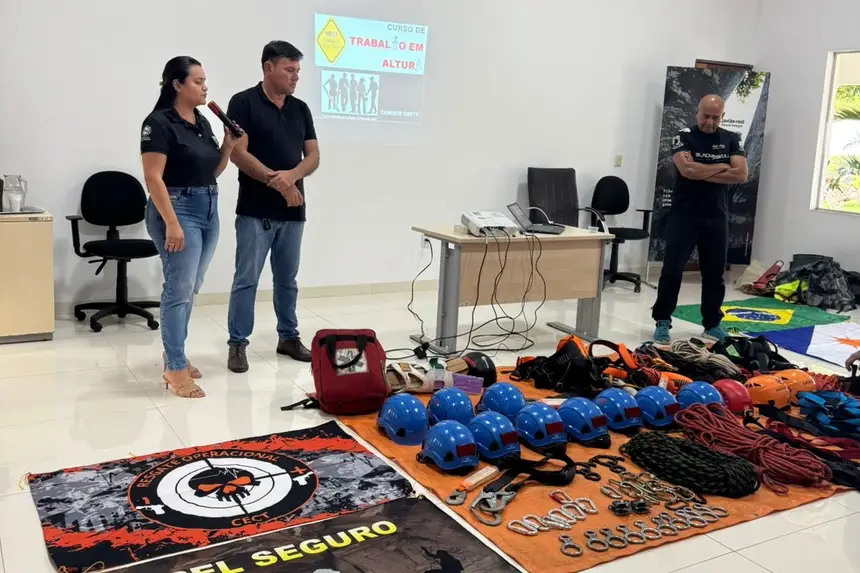
The president of Ideflor-Bio, Nilson Pinto, emphasized the institution's commitment to the development of the state's Conservation Units. "With actions like this, Ideflor-Bio reaffirms its role in valuing Pará's UCs, promoting knowledge, safety, and integration between communities and protected areas. The expectation is that new editions of the training will be held, expanding the reach and positive impacts of the initiative," he stated.


